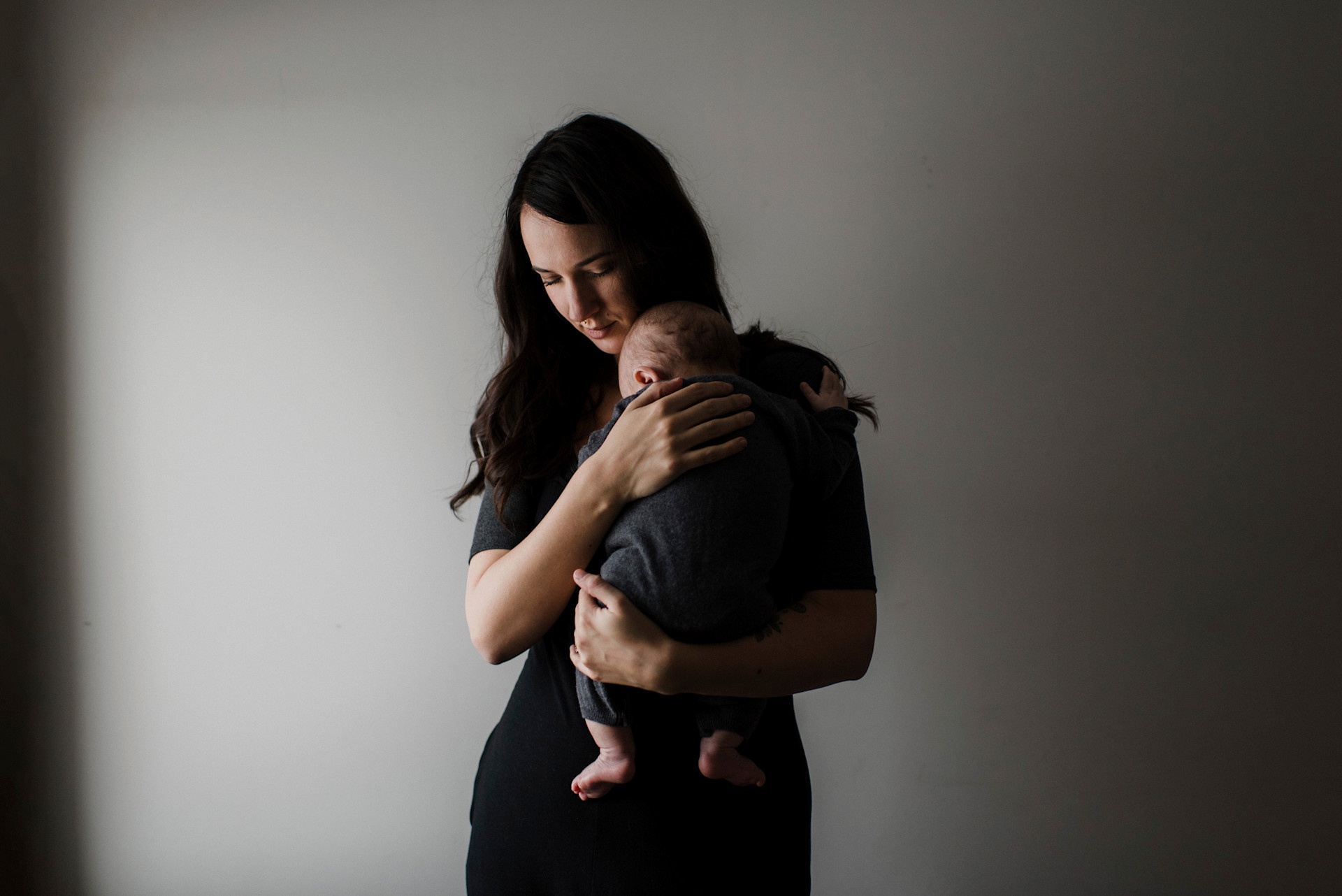Supportive Postpartum Depression Treatment Programs in Long Beach


Discover supportive postpartum depression treatment programs in Long Beach. Find personalized care and effective therapies near you to regain your well-being.
Postpartum depression (PPD) affects countless mothers, casting a shadow over what should be a joyful time. If you’re searching for effective postpartum depression treatment near me, it’s crucial to know you’re not alone. Untreated PPD can impact both you and your family, but with the right support, recovery is within reach.
At The Forge Recovery Center, we specialize in personalized mental health care tailored to your unique needs, offering compassionate guidance every step of the way. In this article, we will explore supportive postpartum depression treatment programs in Long Beach to help you regain balance and well-being.
Recognizing Postpartum Depression: What You Need to Know

Postpartum depression (PPD) is a severe and often misunderstood condition that extends beyond the typical "baby blues." While "baby blues" are common and involve mood swings, tearfulness, and anxiety that typically resolve within two weeks after childbirth, PPD is more persistent and debilitating. It can linger for months, affecting your ability to care for yourself, your baby, and your family.
Key Signs to Watch For:
PPD manifests differently for everyone, but common symptoms include:
Persistent sadness or emptiness.
Irritability or anger that feels overwhelming.
Emotional numbness or detachment from your baby.
Struggles with bonding or feelings of guilt and inadequacy as a parent.
Significant changes in appetite or sleep patterns (beyond typical newborn adjustments).
Factors Contributing to PPD:
Several factors can increase the risk of developing PPD, including:
Hormonal changes: The rapid drop in estrogen and progesterone after childbirth can affect mood and energy levels.
History of mental health conditions: Previous depression or anxiety can make PPD more likely.
External stressors: Lack of a supportive network, financial challenges, or relationship conflicts can exacerbate feelings of isolation or hopelessness.
Understanding these aspects can help you identify the signs of PPD early and seek appropriate support.
Why Addressing Postpartum Depression Matters

Ignoring postpartum depression doesn’t just affect you—it can have profound, long-lasting effects on your baby and family. Untreated PPD may lead to developmental delays in your child due to reduced emotional engagement and can strain relationships with your partner or loved ones.
Potential Long-Term Effects of Untreated PPD:
Babies may struggle with emotional regulation or attachment issues due to a lack of bonding.
Mothers face prolonged mental health challenges, which can escalate into severe depression or anxiety disorders.
Family dynamics may suffer, leading to conflict, resentment, or feelings of isolation.
The Benefits of Seeking Help Early:
Getting treatment for PPD can help you rebuild your sense of balance and confidence as a parent. Early intervention supports a more positive environment for your baby to thrive and can restore harmony within your family. Whether it’s therapy, medication, or community support, seeking help is a courageous step toward healing.
Breaking the Stigma:
Many new mothers feel hesitant to admit they are struggling due to societal pressures or fear of judgment. It’s essential to understand that PPD is not your fault and doesn’t make you a bad parent. By prioritizing your mental health, you’re making a powerful decision for yourself and your family. Seeking help shows strength, not weakness, and opens the door to a brighter future.
Are You Struggling with Mental Health or Addiction?
We Can Help. Call Us Now!
CALL: 877-839-1772
Treatment Options for Postpartum Depression

Postpartum depression (PPD) is highly treatable with the right approach, and no one solution fits all. Various treatment options allow for personalized care to address your unique needs. Here’s a look at some effective methods to manage and overcome PPD.
Psychotherapy
Therapy plays a vital role in addressing the root causes of postpartum depression and equipping you with tools for recovery. Two widely used approaches are:
Cognitive Behavioral Therapy (CBT):
CBT helps identify and change negative thought patterns that contribute to depression. It focuses on helping you develop healthier ways of thinking and responding to stressful situations, empowering you to regain control of your emotions.Interpersonal Therapy (IPT):
IPT addresses relationship issues that may exacerbate PPD, such as conflicts with a partner or lack of support from family. By improving communication and strengthening relationships, IPT helps create a more supportive environment for your recovery.
Medication
Medication can be an effective part of PPD treatment, especially for moderate to severe cases.
Antidepressants:
Certain antidepressants can help stabilize mood and reduce symptoms of depression. For mothers who are breastfeeding, healthcare providers can recommend medications that are considered safe for both mother and baby.Safety and Monitoring:
Medication should always be prescribed and monitored by a qualified healthcare provider. They will work with you to balance the benefits of treatment with any potential risks, ensuring you receive safe and effective care.
Support Groups
Connecting with others who have faced similar challenges can provide immense relief and validation.
Benefits of Peer Support:
Sharing your experiences in a supportive, nonjudgmental group setting can reduce feelings of isolation and offer practical tips from those who have been in your shoes.Local Options in Long Beach:
Many community organizations and mental health centers in Long Beach offer support groups specifically for postpartum mothers. These groups provide a safe space to discuss your journey and build meaningful connections with others.
Lifestyle Modifications
Small, intentional changes in your daily routine can significantly impact your mental health.
Nutrition, Exercise, and Sleep:
A balanced diet, regular physical activity, and adequate rest are foundational to your recovery. Even short walks or light stretching can boost your mood and energy levels.Mindfulness and Stress Reduction:
Practices like meditation, yoga, or deep breathing exercises can help you manage stress and foster emotional resilience. Taking time to nurture yourself is not selfish—it’s a critical part of healing.
Combining these treatment options can create a comprehensive plan tailored to your needs. Whether you pursue therapy, medication, or lifestyle changes, remember that recovery is a process, and support is available to help you every step of the way.
Postpartum Depression Treatment Programs in Long Beach
Long Beach offers a range of resources and facilities dedicated to supporting mothers navigating postpartum depression (PPD). From specialized clinics to community-based support groups, the city provides numerous avenues to help you regain your emotional well-being and embrace motherhood with confidence.
Local Resources and Facilities
Several local organizations in Long Beach focus on maternal mental health. These include hospitals with perinatal mental health programs, therapists specializing in PPD, and nonprofit groups offering peer support for new mothers. Many of these resources provide affordable and accessible care, ensuring you get the support you need without added stress.
The Forge Recovery Center’s Approach to PPD Treatment

At The Forge Recovery Center, we understand that postpartum depression is a deeply personal experience, requiring a compassionate and individualized approach. Our programs are designed to address not just your mental health but also the unique challenges you may face as a new mother.
1. Personalized Treatment Plans
We believe every mother’s journey is unique. That’s why we create tailored treatment plans to meet your specific needs, ensuring you receive the most effective care for your situation. Whether you need therapy, medication management, or support groups, our team works with you to design a roadmap to recovery.
2. Integrated Mental Health and Addiction Recovery Support
If you’re also dealing with addiction or substance use issues, our programs integrate PPD treatment with addiction recovery treatment plans. This dual-focus approach ensures that all aspects of your health are addressed, helping you achieve a balanced and fulfilling life.
3. Holistic Care for Mind and Body
Our treatment philosophy prioritizes holistic care. We combine evidence-based practices like therapy and medication management with supportive measures such as mindfulness training, stress reduction techniques, and peer support groups. This comprehensive approach fosters healing on every level—physical, emotional, and psychological.
At The Forge Recovery Center, our goal is to empower you to overcome postpartum depression and embrace the joys and challenges of motherhood with renewed strength and confidence. You don’t have to face this journey alone—help is available right here in Long Beach.
Are You Struggling with Mental Health or Addiction?
We Can Help. Call Us Now!
CALL: 877-839-1772
Postpartum Depression Weighing You Down? Let Us Help You Heal
Addressing postpartum depression is not just essential for your well-being—it’s vital for your family’s health and happiness too. Recovery is possible, and you don’t have to face this journey alone. At The Forge Recovery Center, we specialize in providing compassionate and comprehensive care tailored to your needs.
Our experienced team is here to guide you every step of the way, offering personalized treatment plans to help you reclaim your life. If you or someone you love is struggling with postpartum depression, reach out to us today and take the first step toward healing.
Are You Struggling with Mental Health or Addiction?
We Can Help. Call Us Now!
CALL: 877-839-1772





